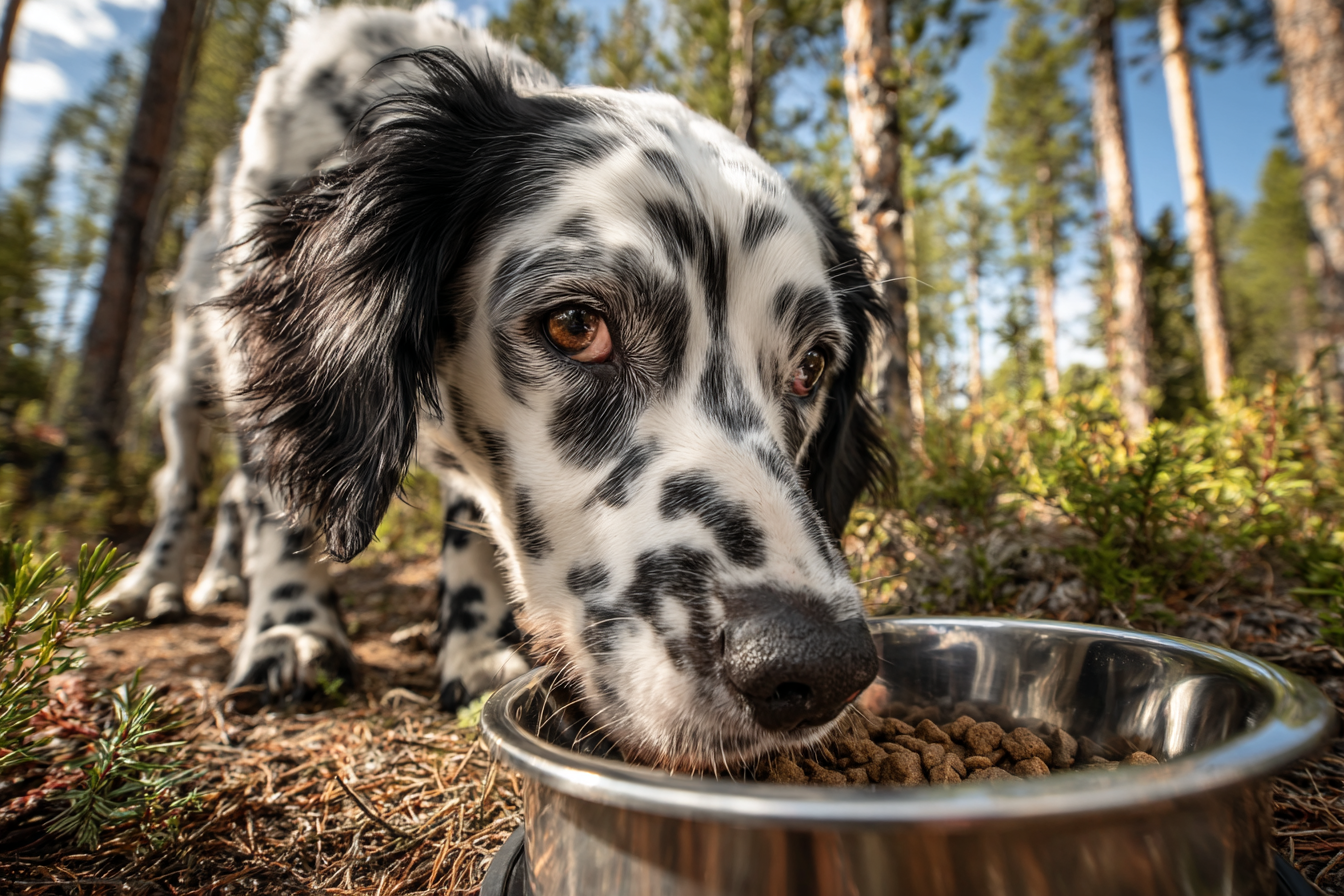Ensuring your English Setter receives the right nutrition is essential to maintaining their energy, supporting their active lifestyle, and preserving the beautiful coat that makes this breed so distinctive. Like all dogs, English Setters have unique dietary needs that change throughout their life stages and activity levels. By understanding these nutritional requirements and making informed dietary choices, you can help your furry friend thrive for years to come. Let’s explore how to optimize your English Setter’s diet for long-term health and happiness.
Nutritional Needs of English Setters
English Setters are medium to large-sized sporting dogs known for their stamina and graceful appearance. Their diet should reflect their energetic nature and the physical demands of their daily activities. The foundation of their nutrition includes a balance of proteins, fats, carbohydrates, vitamins, and minerals.
Protein: Proteins are vital for muscle development and repair, especially important for active dogs like English Setters. High-quality animal-based protein sources such as chicken, beef, fish, and lamb should be prioritized.
Fats: Healthy fats provide a concentrated energy source and are key to maintaining glossy skin and a shiny coat. Omega-3 and Omega-6 fatty acids from fish oil and flaxseed oil are particularly beneficial.
Carbohydrates: While not essential, carbohydrates can provide useful energy, especially for working dogs. Whole grains, vegetables, and fruits offer fiber and nutrients that aid digestion.
Vitamins and Minerals: These play supportive roles in immune function, bone health, and overall wellness. A varied diet that includes fresh foods or high-quality commercial diets usually meets these needs.
Recommended Food Types for English Setters
Choosing the right food form depends on your dog’s preferences, lifestyle, and any specific health requirements.
Dry Food (Kibble)
Dry kibble is convenient, cost-effective, and helps maintain dental health by reducing plaque buildup. Look for formulas rich in protein and healthy fats without excessive fillers or artificial additives.
Wet Food
Wet food is more palatable and hydrating due to its higher moisture content. It can be used as a supplement or a complete meal, especially for picky eaters or dogs needing extra hydration.
Raw Diet
Some owners choose raw feeding, offering uncooked meat, bones, fruits, and vegetables. While a raw diet can provide excellent nutrition if balanced correctly, it requires careful planning to avoid nutritional deficiencies and contamination risks. Consulting a veterinarian or canine nutritionist before starting a raw diet is strongly recommended.
Portion Sizes by Age and Activity Level
The amount of food your English Setter needs varies widely based on their age, size, metabolism, and how active they are.
Puppies
Growing puppies require more frequent meals—typically three to four times a day—with nutrient-dense puppy formulas to support their development.
Adults
Adult English Setters usually do well on two meals a day. Their portions should be adjusted based on energy expenditure. Highly active or working dogs will need larger portions, particularly rich in protein and fat, while more sedentary dogs require smaller portions to prevent weight gain.
Seniors
Older dogs may have decreased activity levels and metabolic changes. Adjusting portions slightly downward while ensuring nutrient-dense, easily digestible foods can help maintain healthy weight and vitality.
Supplements and Vitamins
While a balanced diet should provide most necessary nutrients, some supplements can enhance your English Setter’s health:
- Omega-3 Fatty Acids: Support joint health, brain function, and coat condition.
- Glucosamine and Chondroitin: Useful for joint support, especially as your dog ages or if they are very active.
- Probiotics: Help maintain healthy digestion and immune function.
- Multivitamins: Can fill small gaps but should not replace a balanced diet.
Always consult your veterinarian before adding supplements to your dog’s diet to avoid overdosing and interactions with medications.
Foods to Avoid
Certain foods can be harmful or toxic to English Setters and other dogs, so it’s important to keep these out of reach:
- Chocolate: Contains theobromine which is toxic to dogs.
- Grapes and Raisins: Can cause kidney failure.
- Onions and Garlic: May cause anemia.
- Alcohol: Highly toxic even in small amounts.
- Caffeine: Dangerous stimulant.
- Xylitol: A sugar substitute found in many sugar-free products that can cause sudden hypoglycemia and liver damage.
- Excessive Fatty Foods: Can lead to pancreatitis.
Hydration Tips
Proper hydration is essential for every aspect of your English Setter’s health, from temperature regulation to digestion and kidney function. Always provide access to fresh, clean water throughout the day. If your Setter is very active or the weather is hot, increase water availability and consider incorporating wet foods or water-rich fruits and veggies in their diet.
In some situations, like post-exercise or during illness, hydration needs may rise. Keep an eye on your dog’s drinking habits and watch for signs of dehydration such as dry gums, lethargy, or sunken eyes.
Monitoring Weight and Health
Regularly tracking your English Setter’s weight and overall body condition is key to preventing obesity and associated health problems like diabetes, arthritis, and cardiovascular disease. You should be able to feel your dog’s ribs without pressing hard but not see them prominently. A healthy waistline visible from above is another good indicator.
Schedule regular veterinary check-ups to monitor your dog’s health, discuss dietary adjustments, and screen for underlying health conditions. Keep a journal or use an app to note changes in weight, appetite, energy levels, and coat condition so you can address any concerns promptly.
Optimizing the diet and nutrition of your English Setter takes some thoughtful planning, but the rewards are well worth it. With balanced meals tailored to their unique needs, plenty of fresh water, and mindful monitoring, you can ensure your Setter remains a vibrant and happy companion for many years. Remember, every dog is unique, so partnering with your vet to customize the perfect nutrition plan will give your beloved English Setter the best foundation for a healthy life.







